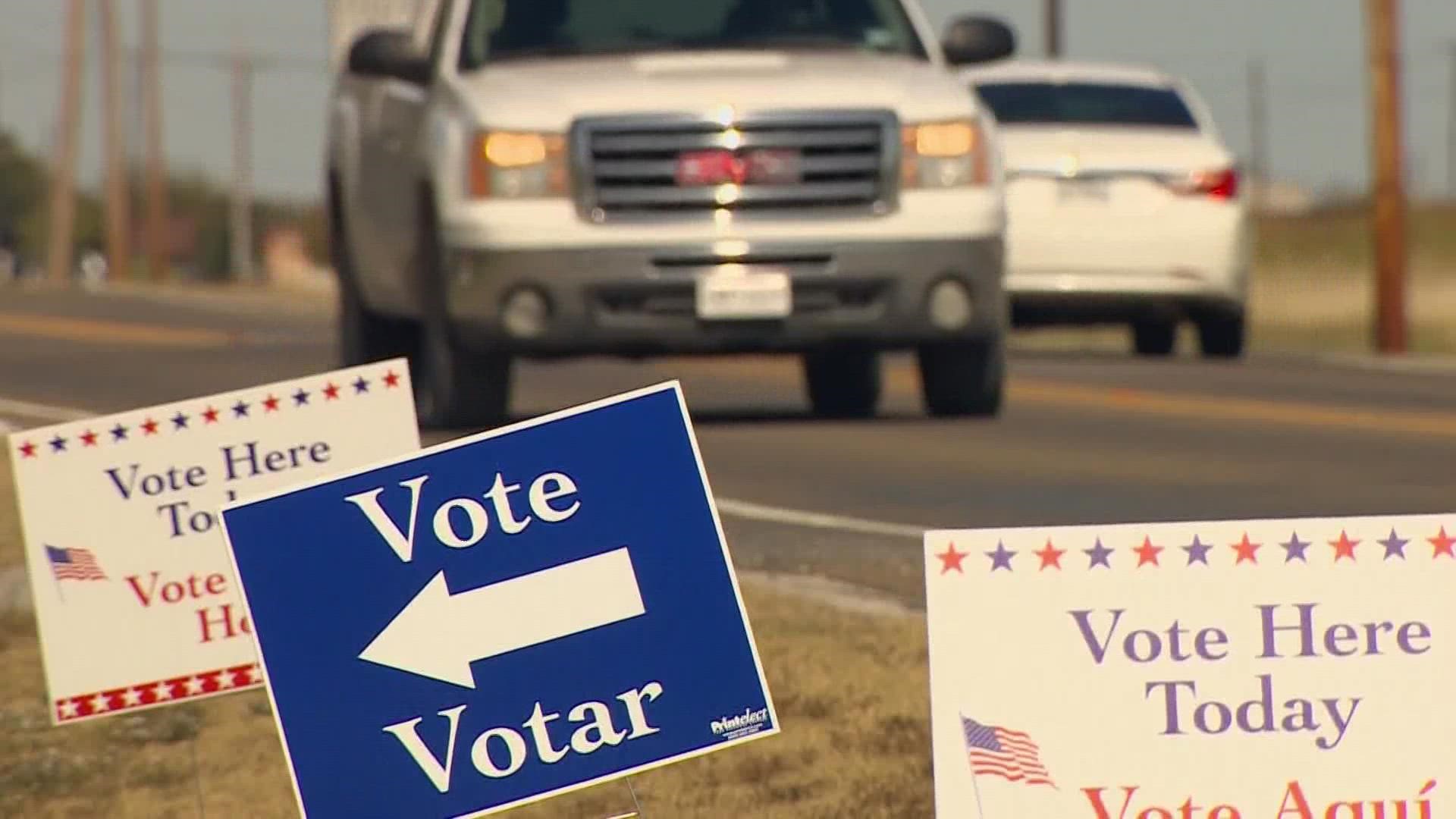DALLAS — The March 1 primary kicks off the 2022 election cycle in Texas. It also ushers in the era of voting under the new Senate Bill 1, which was passed by the Texas Legislature last summer despite backlash from voting rights groups across the country.
The bill was heralded by Republicans as a method of "election integrity," while Democrats criticized the legislation as a way to restrict access to the polls.
Here's how the voting process will be different in Texas due to Senate Bill 1:
No more 24-hour or drive-thru locations
A large number of voters cast their ballot at 24-hour locations in Harris County in 2020, but that won't be the case this year. Senate Bill 1 bans 24-hour locations and drive-thru locations.
Harris County officials have said about 140,000 people voted across 10 drive-thru polling locations in the 2020 general elections.
Senate Bill 1 bans drive-thru locations and limits voting hours from 6 a.m. to 10 p.m.
No more automatic distribution of mail-in ballots
While many Texans might automatically qualify for mail-in voting, they won't automatically receive an application
Senate Bill 1 prevents election officials from sending unsolicited mail ballot applications. If they do so, they'll face a state jail felony charge.
This was another element of the bill involving Harris County, which tried to proactively send mail ballot applications to all of its 2.4 million registered voters, according to the Texas Tribune. The applications had instructions for voters to determine if they were eligible for mail-in voting.
Updated ID requirements
Mail voters will now have to include one of three identification methods on their ballot: Their driver's license number, election identification certificate or the last four digits of their Social Security number. That's in addition to a signature that can be matched with a previous signature in Texas Department of Public Safety records.
More autonomy for poll watchers
Poll watchers, who observe voting and counting for each political party, will now have "free movement" in voting precincts, though they still won't have be able to watch people cast their ballot.
Under previously law, poll watchers were allowed to sit "conveniently near" election workers, according to the Texas Tribune.

